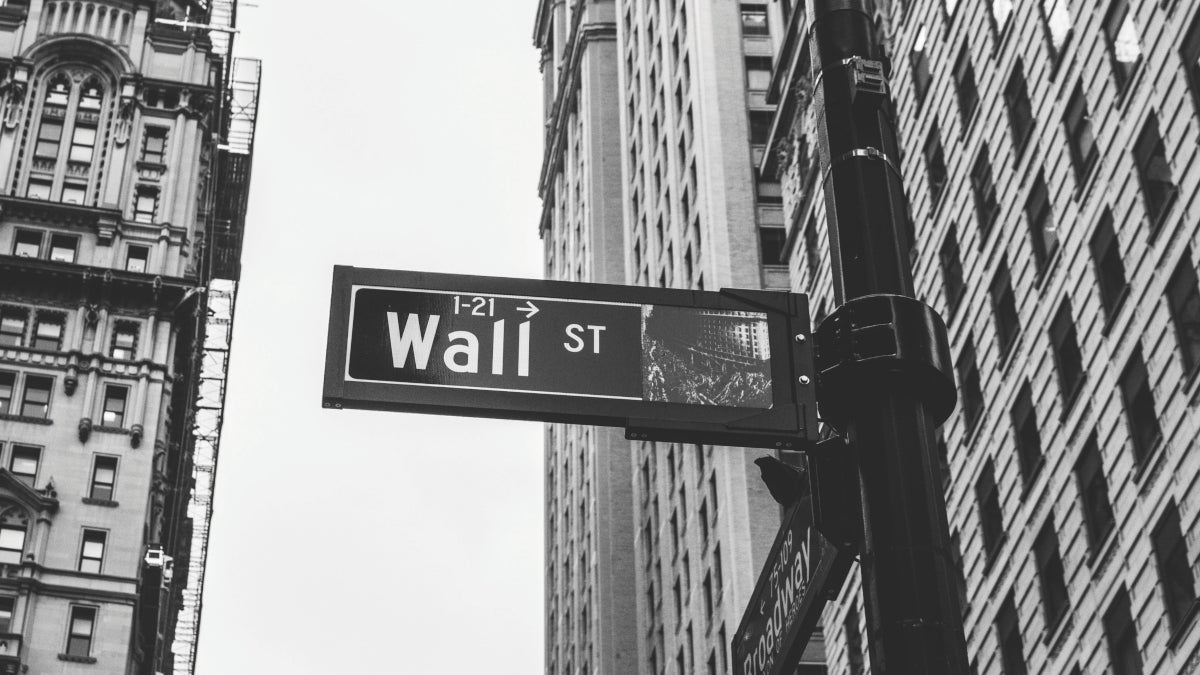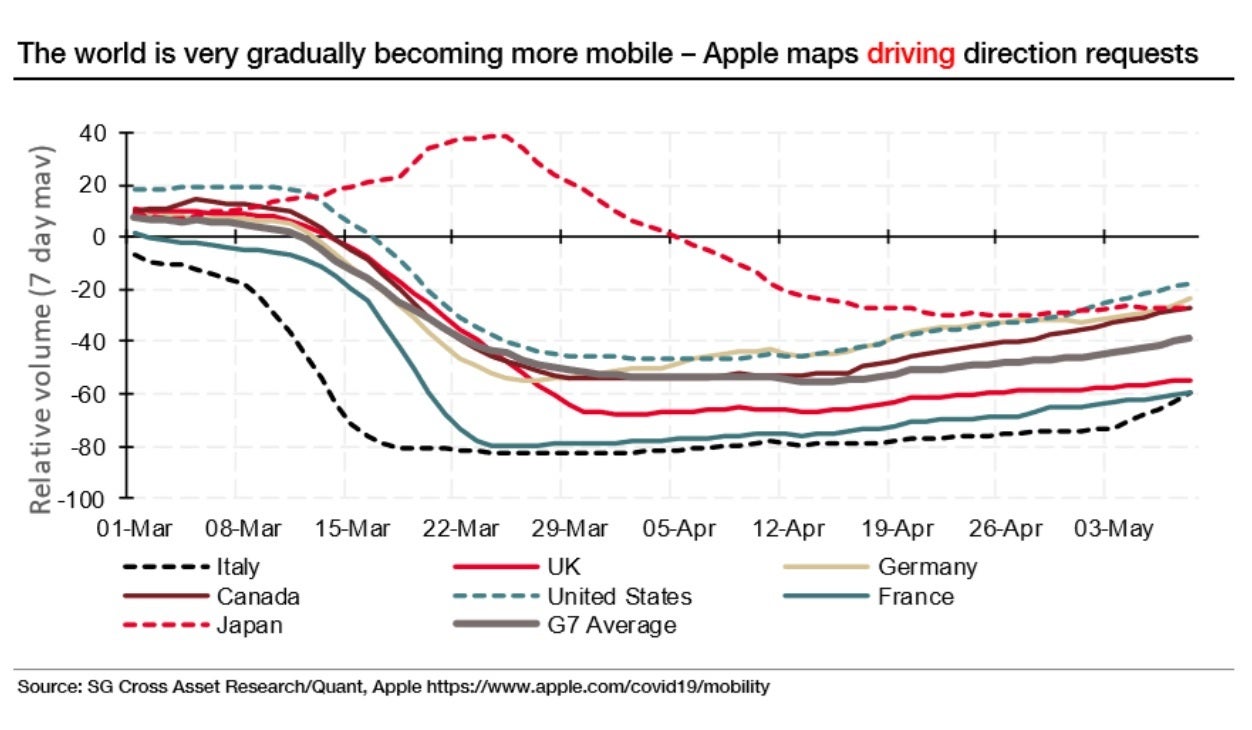Wall Street uses iOS and Android mobility data to take the temperature of the global economy

It would be quite an understatement if we simply said that these are unusual times. Not only is the pandemic responsible for killing people, many survivors are finding themselves financially sick as companies shut their doors and layoff workers. The U.S.employment rate was recently calculated at 14.7%. With so many economic measures at unprecedented levels, Wall Street firms are finding that they can't get a handle on what is going on in the business world using old school figures. Instead, these companies are tracking mobility data generated by iOS and Android users to gain some insight into economic activity.
Wall Street analysts turn to mobility data from Apple and Google to get a handle on the economy
The data can be broken down by geographic regions giving analysts the opportunity to forecast which countries might lead the way in an economic recovery. One of Europe's largest asset managers, Legal & General Investment Management (LGIM), has been breaking down Apple Maps driving direction requests. After adjusting the results each week for seasonality, KGIM uses the data to estimate the Gross Domestic Product (GDP) for different countries. The GDP is used to measure the market value of goods and services produced by a country. The asset manager says that the data that it is coming up with using Apple Maps reveals that the U.S. economy is holding up better than the economies of other countries. Southern Europe is also rebounding, according to the data, as Italy begins to reopen.

The number of direction requests asked of Apple Maps is rebounding in most countries led by the U.S.
The data being used from iOS and Android users relates to economic activity taking place in real-time unlike traditional indicators like unemployment and retail sales which usually are reported after a lag. John Roe, head of multi-asset funds at Legal & General Investment Management, said in an email that "Covid-19 is like no other shock and so most investors are discounting the traditional indicators. Instead it’s all about the shape of the recovery and so we’re tracking a number of innovative data sources that we believe will be more real time."
Roe adds that "We are trying to tread a path between vastly different scenarios. Early indicators like this are crucial for reassessing their relative likelihoods."
Besides LGIM, Societe Generale SA and Deutsche Bank AG also track iOS and Android mobility data. Societe Generale's quantitative analyst Andrew Lapthorne told clients in a note this past Monday that despite the bullish atmosphere created by easing lockdowns in major economic regions, business continues to be weak. The French banking firm's strategists wrote, "Regional differences are apparent and the extent of the lockdown remains clear and though there are very tentative signs that the G7 at least is starting to drive a little more, activity remains depressed. We’ll be watching how this activity develops over the coming weeks."
Both Apple and Google have introduced new online tools last month that are based on users' mobility-or lack of it. Apple uses anonymous data from Apple Maps to show how many people are taking public transportation, driving, or walking in 63 countries. Google's data is also anonymous and breaks down the data to show how many more people are going to grocery stores and parks. This information is the raw data that analysts turn into economic forecasts.
Germany's Deutsche Bank is using data from Google to get an idea about economic conditions in New York. Parts of the state will reopen this Friday but New York City is expected to remain on lockdown during parts of June. The firm's chief economist, Torsten Slok, sees a pickup in daily and weekly subway usage in the Big Apple. However, this improvement in the number of subway riders pales in comparison to the increase in activity spotted at pharmacies, parks, and grocery stores. While a rebound in activity seen in those places may look good for an overall economic snapback, TD Securities sees something else. The banking firm says that increased visits to the park without a similar pickup in the transit numbers is a sign that people are going out because of "quarantine fatigue" instead of going out to shop.
Follow us on Google News













Things that are NOT allowed:
To help keep our community safe and free from spam, we apply temporary limits to newly created accounts: